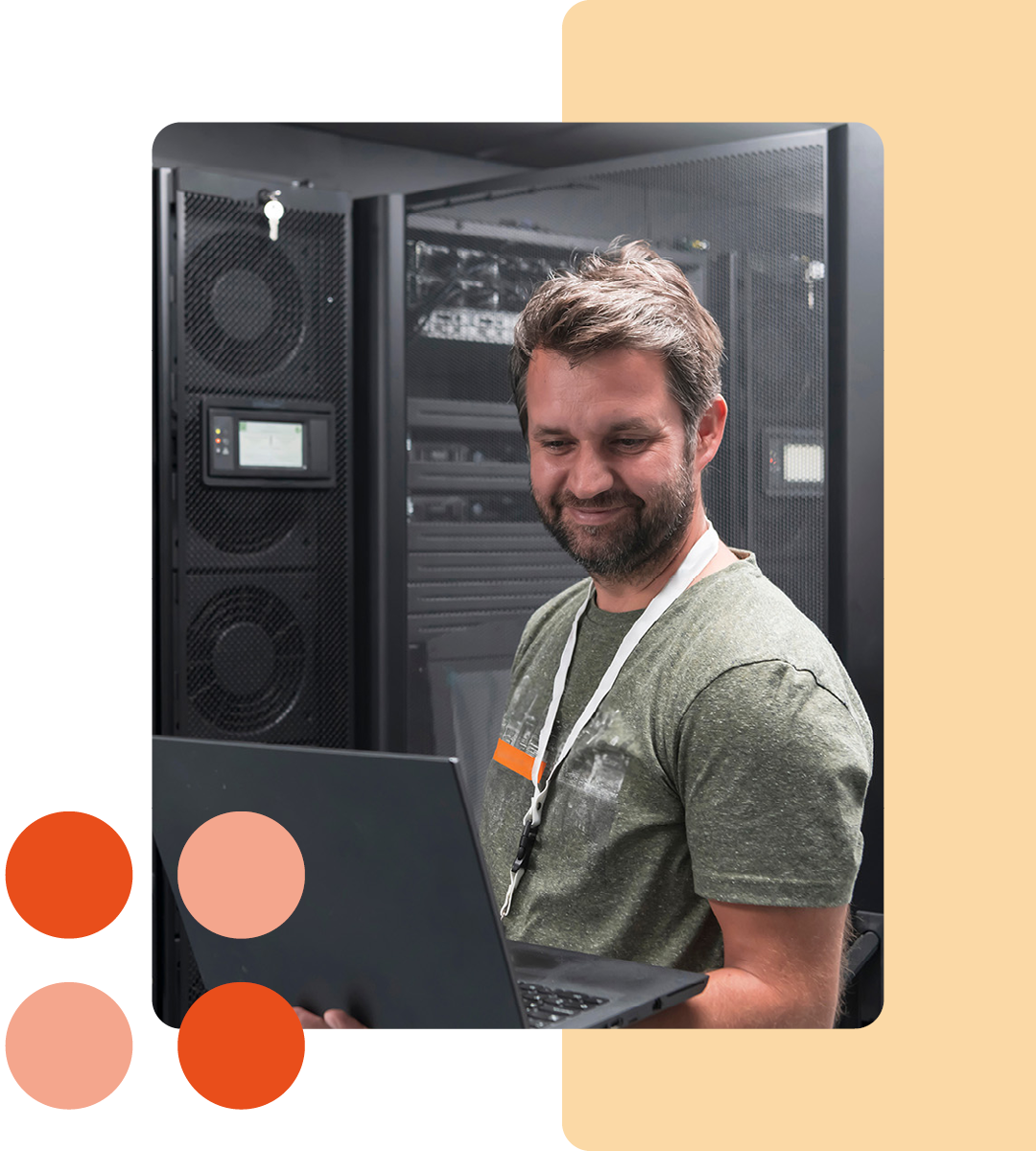As a leading education IT solutions partner, we have a unique ability to understand and overcome the challenges faced by the education sector. With more educational institutions looking to meet their strategic demands and deliver innovations, we see technology as a pathway to the sector’s goals.
Ultimately, Phoenix’s goal is to give our customers the support they need to deliver valuable outcomes while achieving greater value through tailored engagements that will help institutions drive innovative student engagement, transform operations, and reimagine education.
Our experience working with education customers on the deployment and management of cloud, cyber security, modern data centres, and software asset management (SAM) education IT solutions empower you to modernise and drive your institution forward.
Supporting the education sector with a range of education IT solutions
The education sector is continuing to feel pressure from budget constraints, staff retention, and cyber attacks while striving to provide students with a great education.
Phoenix’s managed services are built around the needs of our customers and offer many bespoke options, ensuring reliability in an increasingly adapted world. Our in-house team become an extension of your IT resource to help deliver reliable and secure services.
Explore our managed IT services
Whether on-premises, hybrid, or the cloud, optimising your infrastructure is vital to ensure ongoing efficiencies. There are many options to modernise data centres, storage, and compute, and we are able to help analyse and assess options to deliver a robust strategy for modernising and preparing for current and future opportunities.
Discover how to modernise your data centres
Cyber security has never been more important than it is today, with every institution under constant threat of attack. Within the Cyber Security and Governance, Risk, and Compliance Teams here at Phoenix, we identify any potential weaknesses, address those with current or new technology, and help build a robust service that meets modern security and compliance standards.
Discover our cyber security offerings
We work with schools, colleges, universities, and research institutes to plan, build, and manage their digital transformation journey. Understanding the challenges that come with modernising IT, especially with large, diverse groups of people, is key, and our specialists aim to understand your needs to deliver the best possible solutions.
Explore our digital transformation solutions
Organisations like yours must prioritise using the data you hold to the fullest. With data solutions, you will manage and optimise your data to unlock valuable insights to benefit staff, students, and teachers. Additionally, data is crucial for researchers to access the latest services securely and cost effectively. Phoenix can look at where the data is, who has access, and whether its cost is as optimum as possible.
Explore our data solutions
AI is the future, therefore the use of it in education, both in administrative areas and with students, is key. AI can not only be used within the classroom to support student learning, but it can also tailor educational content to individual learning styles and paces, enhancing student engagement and success. By automating tasks like grading and scheduling, AI enables educators to focus more on teaching.
Explore our AI capabilities












FAQs
IT can support educational institutions by facilitating access to resources, fostering equity through personalised learning, and improving the quality of education through innovative teaching methods.
Educators should continually monitor trends in educational technology to adapt their teaching practices and leverage new tools effectively.
To use technologies effectively, educators need to align them with the learning goals, select them based on the context and the audience, provide training and support, and evaluate and reflect on their impact.
The adoption of IT in education presents challenges such as digital divide issues and data privacy concerns, but also offers opportunities for improved collaboration, flexibility in learning, and data-driven decision-making.





































































